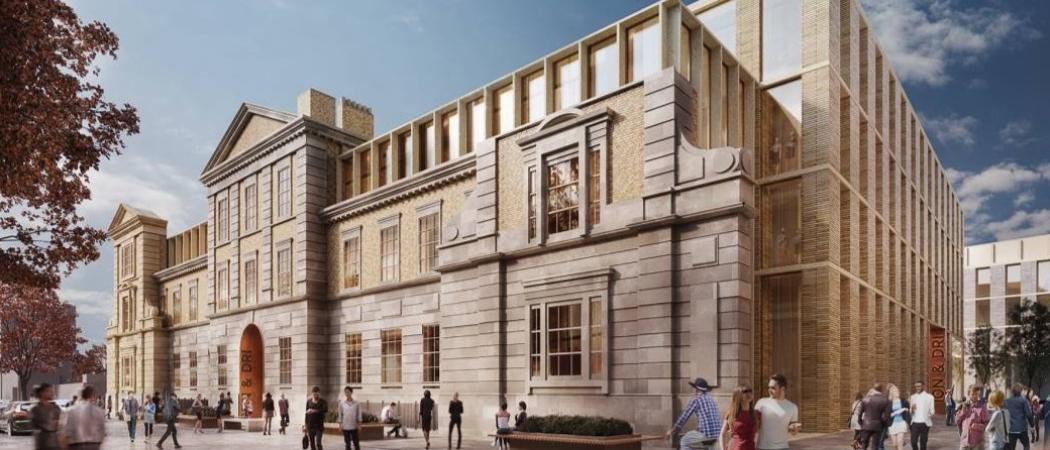
Artist's impression of new IoN-DRI building
UCL Council has given final approval for a new build that will serve as a hub for the UK Dementia Research Institute and a new home for the UCL Queen Square Institute of Neurology.
The £281 million programme of capital works, based on the site of the Eastman Dental Hospital, will result in a new world-class centre for neurological research and treatments, bringing together clinicians and research teams from different disciplines.
Professor Michael Hanna, Director of UCL Queen Square Institute of Neurology, said: “This is a significant step in our journey to achieve a new building which began in a concrete form over seven years ago.
“This project will create a fantastic new translational neuroscience building as part of our dual hub vision, with more clinical and experimental research being based at Queen Square House and across Queen Square. I anticipate that this will be a great new translational neuroscience environment for all staff, students, patients and partners.
“I want to thank all colleagues across UCL and UCLH who have worked so hard to make this finally happen.”
Professor Alan Thompson, Dean of the UCL Faculty of Brain Sciences, said: "It is wonderful to get UCL Council approval to proceed with the full business case for development of the UCL Queen Square Institute of Neurology and Dementia Research Institute hub on Gray’s Inn Road – huge thanks to the entire team.”
The funding comes from a combination of UCL, public and philanthropic sources.
The new building will be the primary home of the UCL Queen Square Institute of Neurology, with some parts of the Institute remaining at Queen Square alongside the National Hospital for Neurology and Neurosurgery (UCLH).
The UK Dementia Research Institute, launched in 2016, is headquartered at UCL and brings together world-class academics at six universities across the UK.
Enabling works will begin this autumn and, subject to planning approval, the building works will commence early next year. The work is scheduled to be completed late in 2023 and will be ready for occupation in early 2024.
This release was first published 18 March 2019 by University College London.





 A unique international forum for public research organisations and companies to connect their external engagement with strategic interests around their R&D system.
A unique international forum for public research organisations and companies to connect their external engagement with strategic interests around their R&D system.